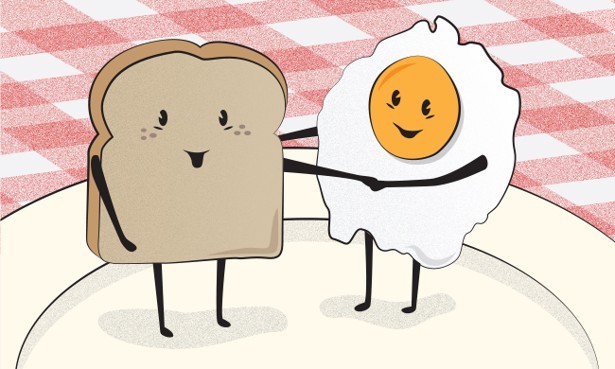Your Hungry Brain And Carb Confusion
Wellness
Wellness

The complexity of the human brain, by far the most complex organ in the human body, is fascinating to explore yet can be overwhelming when put into perspective. It is important to honor and take care of your brain just as you would, say your heart, with eating healthy and getting cardiovascular exercise. Your brain needs to be loved and there are ways you can amp up your brainpower and help maintain your brain function in the long term-all of which is pretty easy to incorporate into your daily life.
It is helpful to note that although your brain only accounts for 2% of your body weight it consumes up to 20% of your body’s oxygen intake and 50% of your body’s glucose. Your brain is a hungry organ! It is consistently taking energy from your bloodstream-24 hours a day. Over 80 BILLION neurons are consistently firing to send electrical signals even when you are asleep.
For the most part the brain survives strictly on glucose and when glucose supply is kept from your hungry brain it can impair function with dizziness, loss of balance, difficulty processing thoughts, impaired speech and vision. Diabetics experiencing hypoglycemia (low blood sugar) know these symptoms all too well.

With so many conflicting diet plans and recommendations it is vital to explore what your brain actually needs to function at its optimal level. There are opposing theories of what types of diets promotes optimal overall health. Moreover, there is conflicting research on whether protein rich diets and restricting carbohydrates is actually benefiting or harming your brain function.
In a popular 2008 clinical study psychologists placed female subjects on either a calorie restricted low-carb diet or a calorie restricted high-carb diet for one month. Memory, vigilance and reaction time were monitored throughout the study at regular intervals. It appeared that at least in the short term, reduced carbohydrates lessened overall cognitive function suffering delayed reaction time and lowered visuospatial memory. The takeaway message for the researches was that “The brain needs glucose for energy and diets low in carbohydrates can be detrimental to learning, memory and thinking.”
"This study demonstrates that the food you eat can have an immediate impact on cognitive behavior," explains Holly A. Taylor, professor of psychology at Tufts and corresponding author of the study. "The popular low-carb, no-carb diets have the strongest potential for negative impact on thinking and cognition."

This information can be confusing given the popularity of the paleo-esque (protein heavy) diets and their reported benefits to health. Where does the brain get the glucose it so craves? According to proponents of theses diets the brain can function in a low glucose state perfectly well and our ancestors of centuries past lived this way.
On these low or no carb diets you liver is said to jump in and work with your brain to provide a new fuel source that your brain then adapts to. The liver essentially converts protein into glucose and delivers to the brain while also converting fat into ketones, which serve as alternative fuel for our brains.
A contrasting study conducted over a year long period found no real difference in brain function in subjects on either high or low carbohydrate diets. The thought here is that with time our brain simply adapts. The incredible intuitive power of the human body at work-‘evolving’ to a newly introduced energy source and process. It is quite remarkable. And although the brain may initially grab at straight glucose after approximately 4-5 days it can satiate itself on these byproducts of fatty acids, ketone bodies.
The most important thing to do when determining what carb to protein ration works best for yourself is simply to listen to your brain! A hungry or starved brain will cry out to be fed. The symptoms may show up differently in each of us but feeling foggy, off-balance, lethargic…these are all good signs that your current diet is not serving you, as it should. There is no one-right way to eat for all humans collectively and no one-right way to eat for you. All of this conflicting messages and research indicates this. But there is a direct connection between your (regular) diet and brain optimization and you owe it to your hungry brain to figure out what that is for you so listen up.
